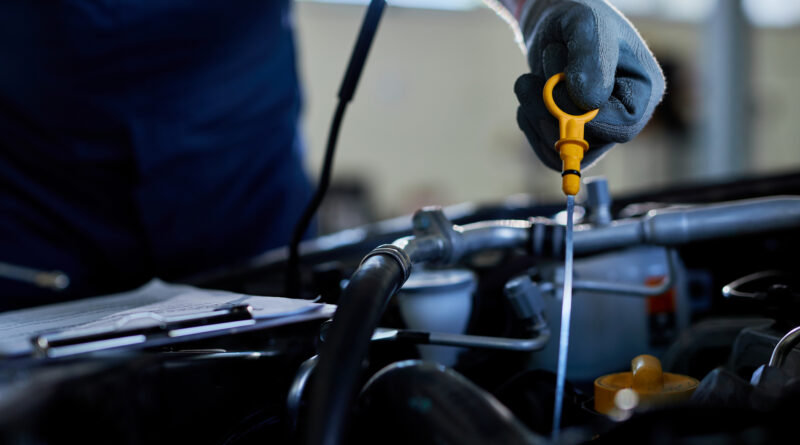Why Is Your Car Burning Oil and What to Do About It: Demystifying the Dilemma
Introduction:
Discovering that your car is burning oil is a red flag that demands immediate attention. Overlooking this issue can lead to substantial and irreparable damage, potentially resulting in hefty repair bills. In this comprehensive guide, we aim to unravel the commonly asked question: Why is my car burning oil? Furthermore, we’ll delve into the often-overlooked concept of “normal” oil consumption and why it varies among different vehicles.
What is considered “Normal” Oil Consumption
While oil burning is a prevalent issue, car manufacturers provide diverse guidelines on what constitutes normal oil consumption. For instance, car owners are informed that it’s normal for certain engines to burn a litre of oil in fewer than a thousand miles, while other manufacturers that one litre within 2,000 miles is within the normal range for a properly driven and maintained vehicle. However, many manufacturers remain silent on this matter, leaving car owners seeking answers from various sources.
As a general rule, most engines with fewer than 50,000 miles shouldn’t consume much more than a 1 litre of oil between changes, unless specified otherwise by the manufacturer. Excessive oil consumption, such as needing a 1 litre every 4,000 miles or less, could be indicative of issues like leaks or internal engine problems. As an engine surpasses 50,000 – 70,000 miles, increased oil consumption becomes more expected, especially past the 100,000-mile mark but as general rule 1 litre in 10,000miles you can accept as normal for your every day diesel or petrol engine not including high performance vehicles. Always check and monitor your oil consumption frequently to understand consumption amount and refer to manufacturer or technician to ascertain if it’s acceptable.
Additionally, the type of oil used plays a crucial role. Many modern engines opt for thinner, lower-viscosity oil, which can contribute to increased oil consumption, particularly in engines with worn components. Where else oil can go.
Unveiling the Culprits: Why Is My Car Burning Oil?
Your car burns oil internally when it infiltrates the combustion chamber, where it should never be. This can happen due to various faulty engine components, such as worn piston rings, valves, gaskets, or external oil leaks. Here’s a detailed breakdown of potential culprits:
1. Worn-Out PCV Valve
The Positive Crankcase Ventilation (PCV) system is integral for eliminating harmful gases generated during combustion. If the PCV system gets clogged, oil is drawn into the engine, leading to oil burning. Swiftly replacing the PCV valve is paramount for resolving this issue.
2. Worn-Out Piston Rings
Piston rings create a seal against the cylinder to prevent combustion gases from escaping. Worn-out piston rings can allow oil to enter the combustion chamber, resulting in oil burning.
3. Damaged Valve Seals
Valve seals prevent oil from leaking into the combustion chamber. When these seals become worn or damaged, oil can leak, leading to combustion and oil burning.
4. Broken Gasket
The gasket prevents oil from spilling onto other engine components. Continuous heating and cooling over time can cause damage and gaps in the gasket, leading to oil leaks. Regular gasket examination during maintenance is essential, and if a worn-out gasket is detected, immediate replacement is necessary.
5. Damage in the Oil Pan
The oil pan can get damaged, especially on uneven surfaces or when hit by road debris. A damaged oil pan can result in rapid oil leakage, noticeable through puddles of oil near your car.
Recognizing the Signs: How Do I Know If My Engine Is Burning Oil?
Be vigilant for these signs and symptoms:
- Your car’s oil level decreases faster than usual.
- A noticeable burning smell.
- Blue smoke emitted from the tailpipe of your vehicle.
Consequences of Ignoring the Burning Oil Issue
Underestimating a burning oil issue can result in severe damages:
- Roughening up or seizing the vehicle’s engine.
- Damage to the spark plugs.
- Overheating or malfunctioning of the catalytic converter.
Conclusion: In conclusion, comprehending the reasons behind your car burning oil is essential for timely identification and resolution. Regular maintenance, prompt action, and adherence to manufacturer guidelines can prevent irreversible damage and ensure the longevity of your vehicle. Remember, a proactive approach to car care is key to avoiding costly repairs and ensuring a smooth driving experience.
Buying a used VW. Vauxhall, BMW, Jaguar, Ford, Volvo, Range rover, Bentley, Aston Martin, Porsche, Ferrari, Lamborghini, Maserati, Hyundai

